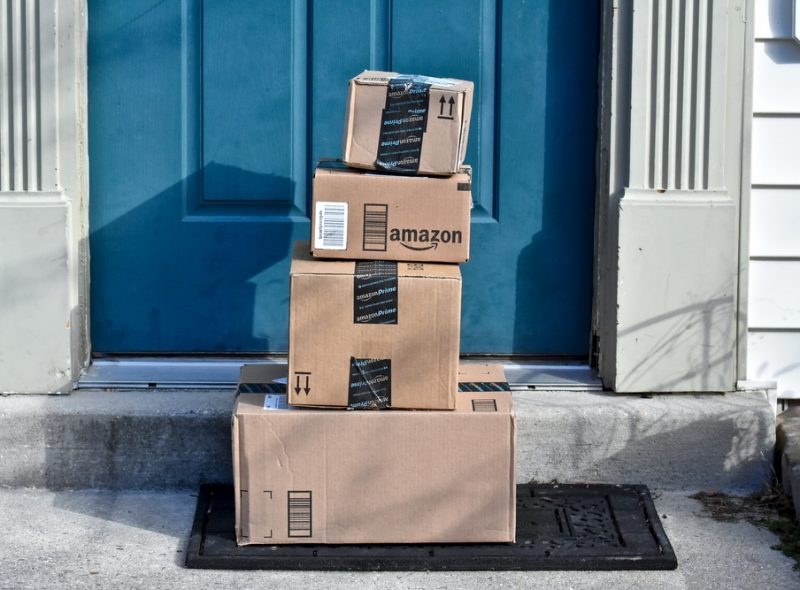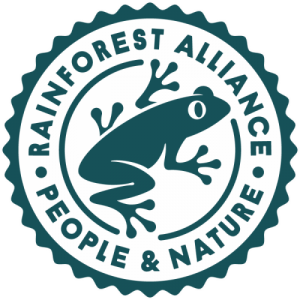It’s January again and we’re going on a diet. But we don’t mean a food diet. We’ll still be eating a fair number of biscuits and buns alongside our Oddbox fruit. Instead we pledge to cut our business with Amazon by 50% and offset the money we do spend with the online giant by a 10% donation to the Rainforest Alliance. We’re calling this our 2022 #Amazondiet.
Why #Amazondiet?
Amazon is quick, convenient and has everything we need and lots of things we really don’t. It’s often cheaper and faster to buy from Amazon than go to a local shops. And Amazon is open 365 days a year, 24 hours a day. But there are hidden costs, to us, to other people and to the planet.
Too little tax
In 2019 a Fair Tax Mark report rated Amazon as the worst of the ‘Silicon Six’ (Amazon, Apple, Microsoft, Facebook, Google and Netflix) for tax avoidance. ‘Amazon stands out as the business with the poorest tax conduct, having paid just $3.4bn in income taxes this decade on $960.5bn of revenue and $26.8bn of profits.’ That means Amazon paid just under 8% tax over a period when the typical US corporation tax rate was 35%. Profits from Amazon’s UK business are largely routed through a loss-making subsidiary in Luxembourg. This means that the company can offset their global tax liability even as their sales and profits grow. There’s nothing illegal about this, but there’s nothing fair about it either.
Too much power
Amazon is an online retailer, which doesn’t usually pay shareholder dividends. This means the company can operate on much thinner profit margins than any physical shop. So it’s really hard for other businesses to compete. During the 2020 Covid lockdowns in which many high street shops were closed, Amazon sales soared. Amazon CEO Jeff Bezos’ personal wealth increased so much that he could have given each of Amazon’s 876,000 employees a bonus of $105,000 (US) and still be as rich as he was pre-Covid.
Profit before people
From stories of workers forced to pee in bottles to a consistently anti-union policy in almost every country, Amazon puts profit before people everywhere it operates. Or rather it puts some people, Amazon customers, before other people, workers, suppliers, and society at large. And, let’s face it, Amazon customers are all of us.
Amazon is addictive
We might hate the way it operates, but Amazon is the company we turn to when we’re out of time, can’t get out of the house, or just can’t wait for that new bit of kit. Groceries, clothes, books, entertainment – you can get it all from Amazon. At Greenkit, like every other business, we have an Amazon business account. Amazon boxes arrive in the warehouse every week often more than once. Sometimes when we try to order from another supplier it turns up in an Amazon delivery anyway.
Meanwhile…the real Amazon is disappearing
As the Rainforest Alliance reports: ‘The tropics lost 12 million hectares of tree cover in 2018, including 3.6 million hectares of irreplaceable primary rainforest. This destruction not only costs us their huge carbon-storage potential, but also creates further greenhouse gas emissions, when the felled trees are burned or left to rot. Studies show that tropical forest loss is responsible for 8 percent of the world’s annual carbon emissions. In fact, if tropical deforestation were a country, it would be the world’s third-biggest emitter, behind China and the United States.’
How will the #AmazonDiet work?
In 2022 Greenkit pledges to cut our spend with Amazon, and all its subsidiaries by 50% . We’re also going to offset the money we do spend with Amazon with a 10% by value donation to the Rainforest Alliance at the end of each quarter. All diets are painful and Amazon is a hard habit to break. But we hope to spend the year forging new links with ethical retailers like EcoVibe the Green Stationery Company and others like them on the way to kicking our Amazon habit. Why don’t you join us?
Sources
‘What’s Wrong with Amazon,’ Ethical Consumer Magazine, Issue 193, Nov/Dec 2021
‘The Silicon Six and their $100 billion global tax gap,’ Fair Tax Mark, 2019
Our Mission to Protect the World’s Forests, Rainforest Alliance




